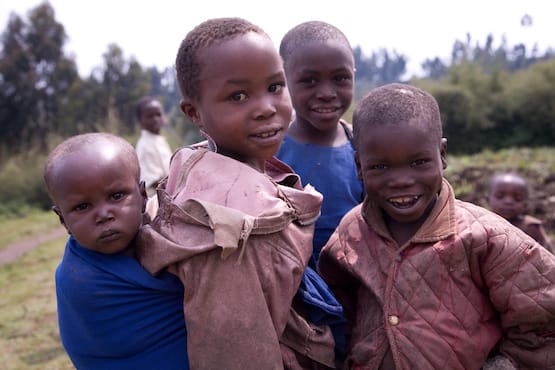The problem: micronutrient malnutrition
Over two billion people don’t receive the vitamins and minerals their bodies require to stay healthy, including iron, vitamin A, folic acid, and iodine. [1] This micronutrient malnutrition, often referred to as “hidden hunger,” can lead to blindness, miscarriage, maternal death during childbirth, birth defects, compromised immune systems, and cognitive and developmental delays.
Micronutrient malnutrition is the leading cause of preventable intellectual and developmental disabilities in the world. [2] It also kills 3 million children under five each year — that’s over 8,200 deaths per day, and nearly half of all deaths in children under five. [3] [4]

Without proper nutrition, the poverty trap deepens: people become ill and vulnerable to disability or death, they cannot attend school or work, their families lose resources in order to care for them, and the cycle perpetuates.
The solution: cost-effective food fortification programs
Food fortification is one of the least expensive solutions to malnutrition, and has proven results. [5] Adding iron to soy sauce in China led to a 33% reduction in anaemia, and within a year of adding folic acid to wheat flour in Chile, spina bifida incidences were reduced by 51%. A 2015 baseline study by the Government of Tanzania in partnership with the Global Alliance for Improved Nutrition (GAIN) determined that only 2.5 per cent of the households consumed fortified flour. Soon after, Sanku launched operations in Tanzania, installing 70 Dosifier machines in small mills across the Morogoro region. A 2017 endline study by Helen Keller International (HKI) determined that fortified flour in households reached 90% in Tanzania’s Morogoro Municipal District.
How Sanku does it
- Sanku installs its patented IoT enabled ‘smart’ Dosifier machines onto the small East African flour mills that feed millions of people. The fully automated Dosifier adds precise and safe amounts of critical nutrients into the key staple food people eat.
- Sanku produces the key inputs in-country that millers need to fortify, such as nutrient premix, flour bags and installs the Dosifier. Sanku owns the last mile of distribution throughout East Africa to ensure millers always have the key tools, training and support every day.
- Sanku monitors the millers’ use of our ‘smart’ Dosifier remotely via the machine’s cellular link and provides necessary support to the millers be it repairs or replacements of dosifiers and/or restocking of nutrients and flour bags. The Dosifier machines enable Sanku to quantitatively measure reach and impact via IoT.

Sanku bulk-buys empty flour bags, which are then sold to the millers at the same price they would otherwise pay. They use the profits to provide millers the appropriate amount of premix at no additional cost. The dosifier’s proprietary technology is fully automated. Sanku monitors the miller’s use of the dosifier remotely, and visits the mill if the dosifier is not in use or needs repair. Sanku is on track to reach more than 100 million people within the decade.
